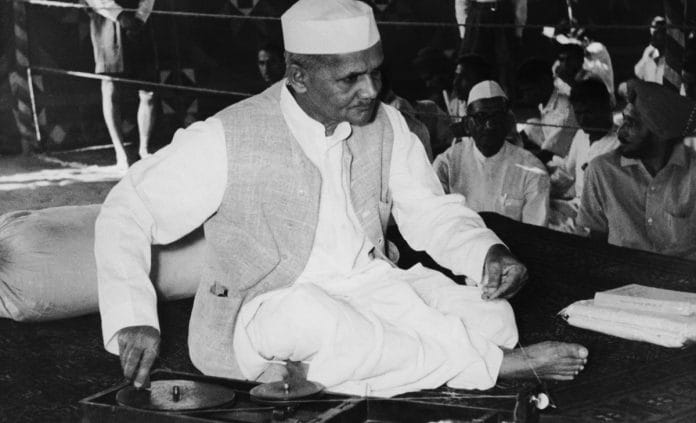Former PM Lal Bahadur Shastri’s sons have served as ministers at the central and state levels, and now his grandsons too are building their own political legacy.
New Delhi: When speaking about dynasties in Indian politics, many names spring to mind – the Nehru-Gandhis, the Scindias, the various Yadavs, Paswans and Patnaiks. But hardly anyone ever mentions Lal Bahadur Shastri’s family tree, whose branches have spread far and wide.
Though none of his descendants have come close to matching the former Prime Minister’s political legacy, the Shastri family has managed to carve out solid careers, spanning three generations and four political parties.
Sons
Three of the former Prime Minister’s sons – Hari Krishna, Sunil and Anil Shastri – gained prominence as political leaders.
Hari Krishna Shastri: The eldest son of Lal Bahadur and Lalita, Hari Krishna followed his father’s footsteps into the Congress party. He was a member of the fourth Lok Sabha (1967-70) from the Allahabad constituency, and later the seventh (1980-84) and eighth (1984-89) Lok Sabhas from Fatehpur.
He was a member of Public Accounts Committee for two years during the seventh Lok Sabha. He also served as minister of state for agriculture for a short period of time under PM Rajiv Gandhi in 1988-89.
Hari Krishna was a social and political activist who championed the cause of the weaker sections of the society. He also had a keen interest in various sports activities. He passed away in 1997.
Sunil Shastri: He joined the Congress as an active member in 1977. He fought and won the Uttar Pradesh assembly elections from Gorakhpur in the year 1980.
Sunil has shuttled between the Congress and the BJP several times, beginning in 1998. He became national general secretary of the BJP and served as the party’s spokesperson for three years. He then became a member of the Rajya Sabha in 2002 for a brief period of six months.
In 2009, he returned to the Congress, only to go back to the BJP mere months before the 2014 general elections.
Sunil has held several important portfolios over the years in the government of Uttar Pradesh, including power, heavy industries, labour, training & employment, and technical education. He has served under chief ministers like Narayan Dutt Tiwari (1985 and 1988-89) and Mulayam Singh Yadav (1989-91).
Anil Shastri: He shot into prominence when he won the Varanasi Lok Sabha seat in 1989 on a Janata Dal ticket, earning 62.31 per cent of the total vote, annihilating his nearest rival, Congress’s Shyam Lal Yadav, who managed just 22.44 per cent. He became minister of state for finance under the V.P. Singh-led National Front government.
Later, he moved to the Congress, where he is currently serving as chairman of the Hindi department of the All India Congress Committee.
Recently, Anil Shastri asked the NDA government to declassify all documents pertaining to father Lal Bahadur Shastri’s death in Tashkent, which has often been a subject of conspiracy theories.
Grandsons
Vibhakar Shastri: Son of Hari Krishna, Vibhakar contested the Lok Sabha elections from Fatehpur on a Congress ticket in 2009 and lost.
Adarsh Shastri: Son of Anil Shastri, Adarsh, who worked with Apple Inc., joined the Aam Aadmi Party in 2013. He was elected MLA from the Dwarka constituency in Delhi in 2015,defeating Parduymn Rajput of the BJP.
Adarsh was on the list of 20 AAP MLAs to be disqualified by the Election Commission for holding “office of profit” earlier this year.
Siddharth Nath Singh: Son of Lal Bahadur Shastri’s daughter Suman Singh, Siddharth has served as spokesperson for the BJP. In 2017, he won the UP assembly polls from Allahabad West, and was appointed minister of health in Yogi Adityanath’s cabinet.
He was recently in the news for writing a letter to the governor, asking to rechristen the city of Allahabad to ‘Prayagraj’







J L Nehru, Indira Gandhi, Rajeev Gandhi, Sonia Gandhi, Rahul Gandhi; all of them were democratically elected to the parliament several times. None of them gate crashed into the parliament as far as I know.
They are all domacratly elected.
Their ability and quality of leadership are good.
They loose the opportunity if they do not perform.
In the election of Congress senior leadership is not not based on their ability but only on their quality of inheritance.